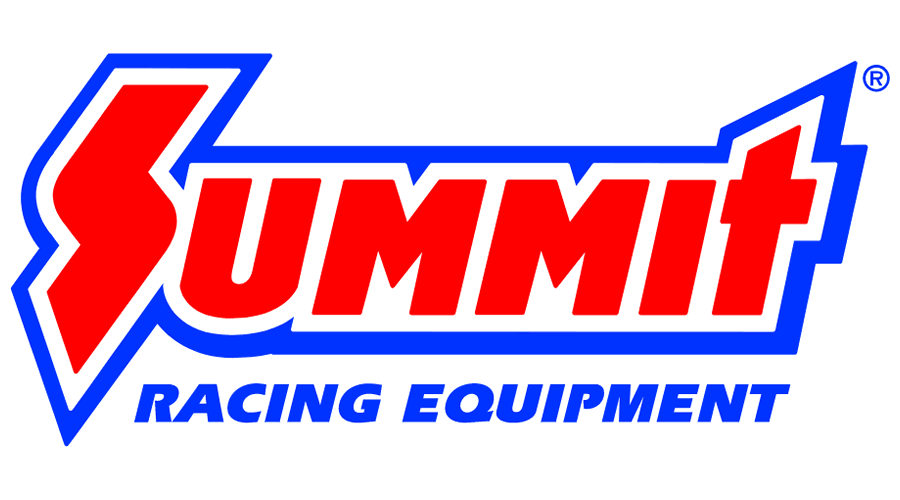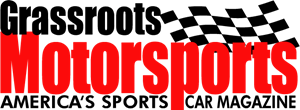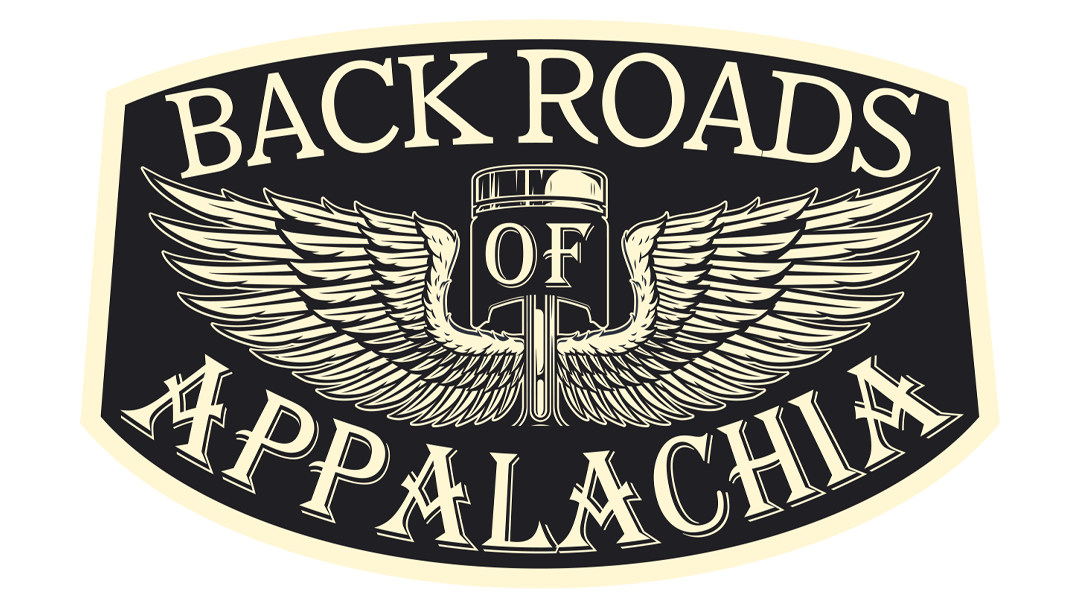Competition Rules
It all starts here
It all starts here
Appalachian HillClimb Series uses existing SCCA rulesets from Solo, Time Trials and Road Racing to create the guidelines for ten HillClimb Classes. Each classing is intended to bring cars with similar performance potential or design and concept together. All cars and driver equipment must meet the designated safety level. And, each class has a series of allowances intended to balance the performance across the multiple rulesets. Not all cars will be competitive, and that's ok - many hillclimbers challenge hills to set a new personal best, go faster than anyone ever has in their specific type of vehicle or just have fun.
It is important to understand that these are guidelines used to place vehicles within these classes. Upon individual inspection, the Classing Committee reserves the right to place a car in a class that best fits its performance potential, modifications and intent.
Have a classing question? Ask us at appalachianhillclimb@gmail.com
Building a car? It is highly recommended that you let us know about your build as early as possible to ensure you are on the right track.
Championship Class and Overall Points
Points will be awarded according to final class and overall finishing order with first taking 25 points, 20 for second, 18 for third and 15, 12, 10, 8, 6, 4, and 2 for places 4th-10th. Year-end class and overall championships will be determined by totaling a driver’s best 3 finishes of the year. Ties will be broken by head-to-head results. If the tie remains, overall margin of victory will be used.
Sport, Super Sport, Sport Max and Sport Unlimited Interior Removal Rules
In keeping with the SCCA TT rules- If the vehicle is equipped with at least a 4-point roll bar, driver’s seat, and restraints meeting SCCA Time Trials Safety Level 2 Standards:
- Rear seats carpet and trim behind the seats may be removed.
- Sunroofs, moonroofs, and similar roof-mounted panel cartridges may be replaced by an alternate solid panel serving no other purpose. Attachment is unrestricted but must be secure.
- Airbags may be removed.
- Airbag-equipped steering wheels may be replaced or have the airbag removed.
- Convertible soft tops and related structure and brackets may be removed.
If the vehicle is equipped with a minimum 6-point roll cage, driver's seat, and restraints meeting SCCA Time Trials Safety Level 3 Standards, all interior carpet, trim and passenger seats other than the factory dash may be removed.
Sport
Sport is an entry level class for small displacement, commonly available sports cars and sedans with bolt-on suspension upgrades and basic power adders like alternate manifolds and ECUs. For these cars, weight reduction is limited to areas of the car where rollbars/cages have been added. Sport also allows small displacement road racing cars. More exotic offerings, and cars that produce higher levels of performance such as the Lotus Elise, are excluded from the class. All cars may run any D.O.T. approved tire and may add simple aero devices, such as small splitters and spoilers.
Sport Requirements
- SCCA Level 2 Safety
- Maximum displacement: 2.5 liters, no forced induction
- Must be eligible for one of the following SCCA Classes:
- Solo: C, D, E, G, H-Street; Street Touring-S, X, R; C, D, E, F- Street Prepared, SSC
- Time Trials: Sport-4, 5, 6; Tuner-4, 5
- Road Racing: Improved Touring-A, B, C; Touring 4; Spec Miata; B-Spec
- Club Spec: CSX
Additional Allowances:
- Any D.O.T. approved tire may be used
- All vehicles may add aero devices as allowed within the Solo Street Prepared Rules
- Vintage production-based racing cars with 1300cc of displacement may run in this class at their road racing spec
Super Sport (SS)
Super Sport is an entry level class for midrange displacement and factory boosted sports cars and sedans with bolt-on suspension upgrades and basic power adders. Super Sport is also home to some SCCA racing cars from limited preparation classes as well as some of the more exotic cars excluded from Sport. All cars may run any D.O.T. approved tire and may add simple aero devices, like small splitters and spoilers.
Super Sport Requirements
- SCCA Level 2 Safety
- Maximum displacement: 4.9 liters, Normally Aspirated; 2.5 liters Forced Induction (2wd); 1.9 liters Forced Induction (AWD)
- Must be eligible for one of the following SCCA Classes:
- Solo: A, B, F-Street; Street Touring-U, H
- Time Trials: Sport-3; Tuner-2, 3, Max 5
- Road Racing: Improved Touring-S, R; Touring-2, 3
- Club Spec: CSM
- Any class listed as eligible for Sport
Additional Allowances
- Any D.O.T. approved tire may be used
- All vehicles may add aero devices as allowed within the Solo Street Prepared Rules
If you are new to SCCA and/or building a car specifically for HillClimb in Sport or Super Sport, we recommend becoming familiar with the SCCA Solo Street Prepared rules and allowances. While there are many rulesets that can get you into these classes, the Street Prepared rules capture the vast majority of allowable modifications.
Download SCCA Solo Street Prepared Rules
Sport Max (SX)
Sport Max is a class that combines high displacement sports cars and sedans with the modifications allowed in Sport and Super Sport with smaller displacement, more highly modified cars. The small displacement vehicle modifications include motor building and swapping, aftermarket forced induction and bolt-on alternate body panels like carbon fiber hoods. All cars in the class are allowed basic aero devices, such as wings and splitters. All-Wheel-Drive cars are not allowed in this class.
Sport Max Requirements
- SCCA Level 2 Safety
- Two-wheel-drive
- Maximum displacement: 6.3 liters, Normally Aspirated; 3.0 liters Forced Induction
- Must be eligible for one of the following SCCA Classes:
- Solo: Street Modified F
- Time Trials: Max-3, 4
- Any class listed as eligible for Sport or Super Sport
Additional Allowances
- Any D.O.T. approved tire may be used
- Note: TT Max aero is the limit for the class, including vehicles running on the SMF ruleset
- All vehicles may add aero devices as allowed within the Solo Street Modified -OR- TT Max Rules
If you're interested in Sport Max with a lower displacement, more highly modified build, or if you just want to review the aero allowance for all cars in the class, the Time Trials Max Rules provide most of the information you will need.
SCCA Time Trials Max Category Rules
Sport Unlimited (SU)
Sport Unlimited is a class for the ultimate “bolt on” builds. Builders can add nearly unlimited power, aero and suspension modifications, provided the unibody and/or frame of the vehicle at and between suspension mounting points is unmodified. Mounting or routing for secondary elements like exhaust and engine/transmission cooling is permitted, provided it serves no other purpose. Sport Unlimited is the domain of big wings, big power and big tires.
Sport Unlimited Requirements
- SCCA Level 2 Safety
- Maximum displacement: Unlimited
- Must be eligible for one of the following SCCA Classes:
- Solo: Super Street, Super Street Prepared, Street Modified, Super Street Modified
- Time Trials: Sport-1, 2; Tuner 1
- Road Racing: Touring-1
- Any class listed as eligible for Sport, Super Sport or Sport Max
Additional Allowances
- Any D.O.T. approved tire may be used
- Minimum weights from Solo and TT Rulesets do not apply
- Hood or fender exit exhaust is allowed
- All vehicles may add aero devices as allowed within the Solo Street Modified -OR- TT Max Rules
The most expansive ruleset within Sport Unlimited is the SCCA Solo Street Modified Rules. Competitors and builders should be familiar with these rules, most specifically, Section 16.1.O.
Download SCCA Solo Street Modified Rules
Modified (M)
Modified is for small displacement, normally aspirated cars with a high level of modifications. Alternate body panels, removal of road-going equipment and the swapping and building of engines are all allowed. Modifications to the frame or unibody are allowed, and the only limit on aero is that devices may not be moveable during competition.
Modified Requirements
- SCCA Level 2 Safety
- Maximum displacement: 2.5 liters, no forced induction
- Vehicles must have either a windshield or a hood
- Must be eligible for one of the following SCCA Classes:
- Solo: X, D, E, F-Prepared
- Time Trials: Unlimited-2
- Road Racing: Grand Touring-3 Lite; Super Touring Lite; E, F, H-Production
- Any class listed as eligible for Sport
Additional Allowances
- Any tire may be used
- Aero must be fixed, but is otherwise unlimited
Super Modified (SM)
Super Modified is for cars with a high level of modifications that either have larger displacement or a smaller displacement with forced induction. Super Modified generally has the same limits as Modified, but with some additional allowances to accommodate forced induction cars. All wheel drive cars are not allowed in Super Modified.
Super Modified Requirements
- SCCA Level 2 Safety
- Two-wheel-drive
- Maximum displacement: 5.7 liters, Normally Aspirated; 3.0 liters, Forced Induction
- Vehicles must have either a windshield or a hood
- Must be eligible for one of the following SCCA Classes:
- Solo: C-Prepared (note- ALL CP cars may run in SM, regardless of displacement)
- Time Trials: Max-1, 2; Unlimited 1
- Road Racing: Super Touring Under; Grand Touring-2; American Sedan
- Any class listed as eligible for Modified or Super Sport
Additional Allowances
- Any tire may be used
- Aero must be fixed, but is otherwise unlimited
- Hood or fender exit exhaust is allowed
Whether you are running in Modified or Super Modified, the Time Trials Unlimited Ruleset is going to capture any and all modifications limits (or lack thereof) that you will need to be familiar with.
SCCA Time Trials Unlimited Category Rules
Classic Stock Car (CSC)
The Classic Stock Car class is for classic and vintage stock cars that have raced in a variety of series from NASCAR. These are some of the most popular and interesting cars on the mountain, always a favorite of fans, workers and fellow competitors.
Classic Stock Car Requirements
- SCCA Level 3 Safety
- Must be from a NASCAR sanction class from 10 years or more ago:
- Includes: Cup, COT, Exfinity, Busch, Modified, Sportsman, Truck, Strictly Stock, Late Model Stock
- Maximum displacement: 429 CID
- 5 on 5 or Wide 5, 15-inch diameter wheels must be used
- Minimum wheelbase of 105 inches
Outlaw
Outlaw is for production-based cars that live outside the rules - the ultimate builder’s class. So long as the Course Marshals or Classing Committee can correctly guess what kind of car it is… or is trying to be, within “close enough” range - it is eligible for Outlaw. These are the fastest “door cars” and tube frame racers on the hill, pushing every limit of power, aero and design.
Classic Stock Car Requirements
- SCCA Level 2 Safety (Level 3 required in 2025)
- Must be production based and/or have a production car silhouette
- Maximum displacement: Unlimited
- Vehicles must have either a windshield or a hood
Additional Allowances
- Any tire may be used
- Aero must be fixed, but is otherwise unlimited
- Hood or fender exit exhaust is allowed
Special Limited (SL)
Special Limited is for SCCA road racing formula cars and Spec Racers. Cars must be legal for one of these SCCA Road Racing Classes - Formula F, Formula 5, Formula Vee or Spec Racer Ford. Odds are, if you are interested in running one of these classes you are already familiar with the rules, which detailed in the Road Racing General Competition Rules.
SCCA Road Racing GCR (look for "yyyy General Competition Rules (GCR) - Updated Monthly")
Note: Look for "General Competition Rules (GCR) - Updated Monthly"
Special Limited Requirements
- SCCA Level 3 Safety
- Must be eligible for one of the following SCCA Classes:
- Solo: C, F-Modified
- Road Racing: Formula-F, 5, 6, Vee; Spec Racer Ford (any Generation)
Special Open (SO)
Special Open is the anything goes, unlimited, if you can dream it you can do it HillClimb Class. Vehicles must meet SCCA Level 3 safety and/or SCCA GCR safety. If you haven't found what you are looking for in the classes listed above, this one is for you.
Special Open Requirements
- SCCA Level 3 Safety
- Maximum displacement: Unlimited
- Must be eligible for one of the following SCCA Classes:
- Solo: A, B-Modified
- Road Racing: Formula-A, X; Prototype-1, 2, X
Additional Allowances
- SCCA Level 3 Safety
Additional Notes
- Rotary engine displacement is the actual displacement of the engine multiplied by 2
- Production vehicles that remove the majority of exterior panels, or are converted to a "kart" are excluded from Sport Classes and will run one class up from their normal classing - examples:
- otherwise eligible for Modified goes to Super Mod
- otherwise eligible for Super Mod goes to Outlaw
- otherwise eligible for Outlaw goes to Special Open





